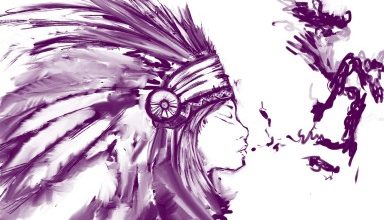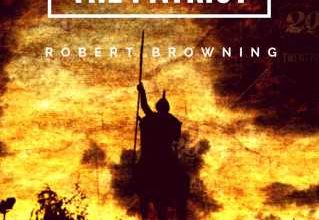
Chief Seattle’s speech is a brilliant document of folk wisdom advocating coexistence of races and mutual respect for each other’s way of living. It has gained immense popularity through the ages, thanks to its emphasis on the themes of love, brotherhood, coexistence and respect for nature. Before reading this analysis make sure you’ve read the summary of the speech by clicking here.
Chief Seattle’s Treaty Oration is as much a celebration of different ways of being as it is a commentary on the colonial mindset which sought to undermine the ethos Native American societies had lived The government’s move to buy the land seemed a “strange” one to the Natives as the Sqwamish tribe didn’t follow the logic of viewing the land as a commercial entity. Rather, they viewed it as their home and indeed a very part of their being. Throughout the speech, we see the recurrence of cultural differences between the colonists and the Native Americans, a glimpse of which can be seen in the first few sentences of the speech.
By insisting that the ‘Washington Chief’ can rely on his words “with as much certainty as he can upon the return of the sun or the seasons”, Seattle gives us a glimpse of a way of life which doesn’t base itself on written legal documents/treaties but rather on the word of the leader which nevertheless, is as potent and binding as the former. It isn’t in the technology of a written script or the courts of law that justice may be sought but rather in the leader’s word and in one’s sense of fairness.
Chief Seattle acknowledges the vulnerability of his people and expresses gratitude towards the ‘Chief at Washington’ for giving them a fair deal. It is only in retrospect that we can fully understand the nature of the ‘fair deal’. Far from being a disinterested statement, the words “This indeed appears just, even generous, for the Red Man no longer has rights that he may respect” seems to carry a rather mournful tone. However, the “mournful memory” of the past glory does not make him dwell over the ‘untimely decay’ of his people and he is unbiased enough to accept that his people have also been at fault rather than placing the full bame on White Settlers.
One wonders however what ‘fault’ is he hinting at. One must also keep in mind that this speech is a translated version of what was actually spoken. In fact it is probably a product of a two-step translation process as it was articulated in the Lushootseed language spoke by the Chief, mediated via the Chinook Indian trade language before finally being translated to English. Translations are often tinted by the perspective and prejudices of the translator Therefore, the “security” Chief Seattle hopes to find in the “bristling wall of strength” provided by the warriors of the “great and good father” and his immense gratitude towards the government must be read bearing that this praise of colonial government by the Indian Chief is written by a colonial settler working for the colonial government. This can be better understood by reading the historical background of Seattle’s speech. To read the historical context of the speech, click here.
The influence of Christianity is evident in throughout the speech.
“Your God seems to us to be partial. He came to the white man. We never saw Him; never even heard His voice; He gave the white man laws but had no word for His red children whose teeming millions filled this vast continent as the stars fill the firmament. “
These lines by Seattle speak of his awareness towards Christianity (the real Chief Seattle he had converted to Roman Catholicism) but also do not mark a complete, unquestioned acceptance of the religion. It is rather defeated by a simple internal logic which affirms the partiality of the White Man’s God. The fact that their God gave them laws “written on tablets of stone by the iron finger” (referring to the Ten Commandments) highlights the technology of the written word which wasn’t available to ancestors of the Native Americans. One can thus being to see how our belief systems are informed by the technology we command and how unjustified and unethical is the sheer action of disparaging somebody else’s faith without understanding how it is formed and the role it plays in their lives. The importance of respecting one another’s way of life and refraining from a homogenizing attempt (state sponsored or otherwise) is made clear by the Chief’s words.
In this regard, the words ” Your God is not our God. Your God loves your people and hates mine” is a very strong statement which unmasks the excluding tendency of monotheistic religions that claim authority over ‘absolute truth’.
We are forced to pause and ponder over the import of the lines which testify of one’s love for the way of life one follows and an intrinsic attachment one has with the place of his/her birth :
” …and the very dust in which you stand responds more lovingly to their footsteps than yours, because it is rich with the blood of our ancestors and our bare feet are conscious of their sympathetic touch”
This deep association with one’s land as a physical space gains its strength not only by the virtue of being one’s place of birth but also because the land has been a part of their existence, the very core of their being and it cannot be obliterated by political events, however great.
The European settlers carried out brutal massacres to wipe out the “teeming millions” and this brutality is the reason why the Chief’s people have been greatly outnumbered. A cycle of violence on both sides had created a sense of mistrust between the two communities and this time, the government was coming after their lands. However, Seattle’s positive response speaks volumes oh his attempt to ease the tension between the two races
Chief Seattle ends his speech on a very sombre note as he forshadows the time when the memory of his tribe shall have become a myth among the white men. It is interesting to know that during the rapid growth of scholarship and research in Chief Seattle’s speech in the later half of the 20th century, many even came to the conclusion that the oration by Chief Seattle never took place and the speech is nothing more than fiction .
Chief Seattle makes a final demand to allow the people of the tribe to visit in any time or place the graves of their ancestors. It is very important to understand the nature of this demand as it sheds great light on the value systems of the Native American society. This demand by the Chief helps us understand what his people value the most. As it turns out, the one condition Seattle places forth is that his people be allowed the privilege of visiting, at any time, the tombs of their ancestors,friends and children. In short, what he demands for and what his people consider to be most precious is their distinct way of living
The Chief seems not only able to accept the bright future of the White Man but also makes it clear that the remnants of the Red Man shall converge with the White Man’s present as he observes :
At night when the streets of your cities and villages are silent and you think them deserted, they will throng with the returning hosts that once filled them and still love the beautiful land.”
Chief Seattle’s Treaty oration of 1854 is a remarkable speech which presents us a perspective that as for long been replaced by a Western idea of ‘civilization’. It is an eloquent expression of the untold sufferings inflicted on the natives of places all around the world who had the misfortune of being on the European Colonizer’s path towards global dominion. The Chief however does not present the case of his tribe with bitterness but rather seems to embrace its gradual demise with a stoic resignation. The piece also gives us a view of the ethos and culture on which Seattle’s tribe had been built on. And it is in every way as important and dear as the ideas of a version of civilization propgated by the White Man. This speech is one which calls for tolerance, accommodation and mutual respect of different ways of living.
The oration of Chief Seattle is a gift of an age gone by. It is the voice of the past directing the actions of the present and is bound to impact the future. Our world needs do hold on to this gem like never before. With growing threats of communal violence both in the home and the world, Chief Seattle’s speech with its themes of tolerance, accommodation, reconciliation and respect for each other’s differences is all we have to latch on to. In this regard, the Oration of Chief Seattle is like the Guiding Spirit of the Red Indian folklore which is speaking to the present world towards tolerance and cooperation. Would that we tune our ears to heed its message.





This is a brilliant analysis of Chief Seattle’s speech. Much thanks!